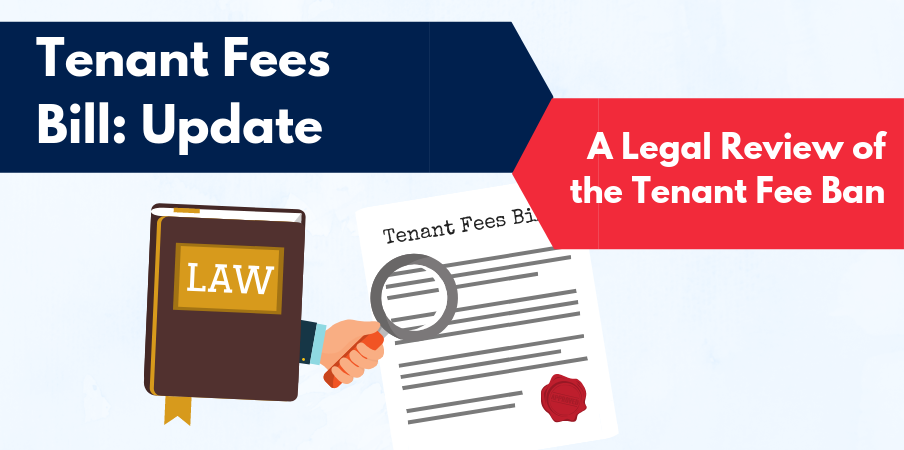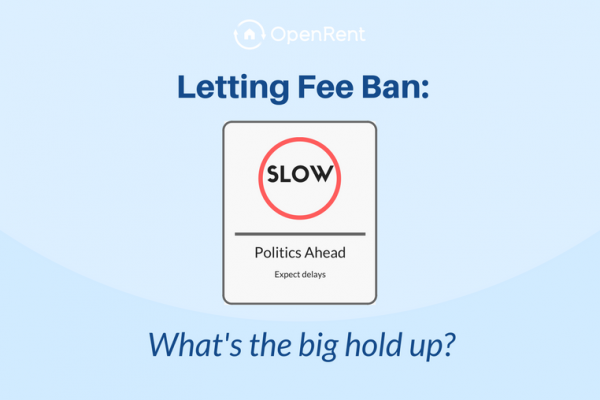The Government plan to ban tenant fees is getting closer to becoming law. The policy divides landlords with 64% supporting the bill and 36% opposing. Whatever you think of it, we want to help you understand exactly what the ban means for you.
Here to talk us through the finer legal details of the Tenant Fees Bill is Samuel Beswick, a Frank Knox Memorial Fellow at Harvard Law School and author of several papers on UK lettings law.
The Tenant Fees Bill is set to be passed into law in England. In the upcoming November issue of the Landlord and Tenant Review, I critique what the Bill gets right and where it falls short. Here, I summarise six highlights that landlords, agents and tenants should know once the Bill is enacted:
1. Tenant fees are banned (unless they’re not)
The Bill takes the approach of prohibiting all charges to tenants, and then carves out exceptions in schedule 1.
Landlords and agents must stop charging reference fees, “check in / check out” fees, etc. They can charge only for rent, a holding deposit, a tenancy deposit, reasonable fees for changing or breaching a term of the tenancy agreement or for terminating the tenancy early at the tenant’s request, and charges for council tax and various utilities. These fees are only binding if specified in the contract/tenancy agreement.
2. Holding deposits protect both landlords’ and tenants’ interests
Ordinarily, a holding deposit creates a binding contract between the prospective tenant and the landlord (even if paid through an agent). The Bill caps holding deposit payments at 1 week’s rent and states that the tenancy agreement should be concluded within 15 days of paying a holding deposit.

If the tenancy falls through, the holding deposit should be refunded to the applicant unless certain specified exceptions apply that cause the landlord or agent loss.
3. Letting agents are not “the servants of two masters”
This is a common myth. The Bill (as well as the Housing and Planning Act) defines a letting agent as a person who does agency work for “a landlord … or … a tenant who is seeking to find housing to rent.”
The letting agent acts for one or the other, not both. Agents invite a conflict of interest in pocketing tenants’ money when their client is the landlord. The Bill rightly clamps down on this practice. It is better that fees are paid only by the landlord with costs reflected in the rent.
4. English common law still applies
The Bill does not provide an exhaustive regime over fees and holding deposits; it simply sets down minimum obligations for their treatment.
Landlords and agents should not confuse these minimum obligations for their actual potential liability in English law. Whereas the Bill requires the prompt refund of certain payments when tenants have been unfairly treated, English contract law may provide for compensation to cover such persons’ losses.
5. Landlords and agents can be fined for breaching the Bill
They can be financially penalised up to £5,000 for each breach of the Bill, and up to £30,000 if their conduct amounts to an offence. Landlords may not pursue section 21 evictions when they fail to comply with the Bill.
The first port of call for tenants or tenancy applicants who wish to enforce their rights will usually be to Citizens Advice, who will assist to report the landlord or letting agent to the appropriate trading standards authority or district council.
6. They can also be sued by tenants
Tenants and tenancy applicants may, alternatively, pursue legal proceedings against defaulting landlords and agents themselves. They can apply to the First-Tier Tribunal (Property Chamber) if a landlord or agent charges a prohibited payment and fails to repay it. Alternatively, for breaches of contract and certain other rights tenants and tenancy applicants may have recourse to the County Court’s Money Claim Online centre.
The Tenant Fees Bill is not radical legislation. It essentially reinforces rights that English law already recognises but has failed to protect. Ordinary landlords and agents who follow good practices would already comply with the Bill’s requirements. Once it becomes law, it won’t lead to a flood of investigations or lawsuits. That said, it is hoped that better understanding of rights and obligations in the tenancy market will be matched by better compliance with the law.




Start the discussion at community.openrent.co.uk